Latest News
U.S. ‘deeply troubled’ by attacks on civilians as Taliban sweep across Afghanistan
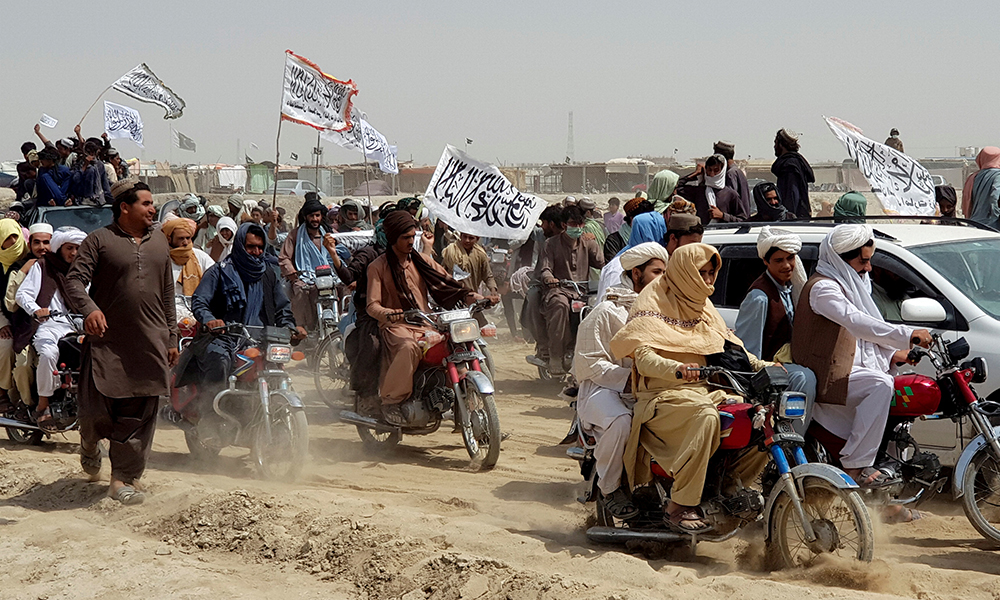
The United States said on Wednesday it was deeply troubled by reports of escalating attacks on civilians as the Taliban sweep across Afghanistan and Washington pulls out its last remaining troops and ends its longest war.
Secretary of State Antony Blinken, on a visit to India, said the only path to peace in Afghanistan was through negotiations, which all parties must take seriously.
Taliban insurgents have captured districts across Afghanistan and seized vital border control points in recent weeks, as Washington withdraws its last troops after 20 years. The Pentagon now estimates that the fighters control more than half of Afghanistan's district centres.
The surge has raised the prospect that the militants could return to power. Millions of people fled their extreme violence during their last period of rule from 1996-2001, when they staged public executions of their foes, banned women from work and education and hosted Osama bin Laden's al Qaeda network.
The Taliban say they will treat civilians well if they return to power, and will not allow the country to be used as a base for international terrorism.
Describing reports of attacks on civilians as "deeply, deeply troubling", Blinken said: "An Afghanistan that commits atrocities against its own people would become a pariah state.
"There's only one path, and that's at the negotiating table, to resolve the conflict peacefully."
The United Nations reported this week that civilian casualties had been surging in recent weeks, with as many killed in May-June as in the previous four months. The report did not cover casualties in July, when fighting has intensified further.
Afghans in government-held areas have been alarmed by domestic media reports in recent days of abductions and killings of civilians in areas where the Taliban have advanced. The Taliban deny they are carrying out revenge killings.
U.S. President Joe Biden has ordered all U.S. troops out of the country, fulfilling a policy pledge made by his predecessor Donald Trump, despite warnings from American generals of the potential for renewed civil war without foreign troops to protect the Kabul government.
Peace talks between the government and the Taliban in Qatar have largely stalled, with the Taliban showing little interest in negotiating while they are gaining on the battlefield.
CHINA HOSTS TALIBAN DELEGATION
Taliban delegations have visited neighbouring countries in recent weeks, gaining international standing for a movement that had been treated as outcasts and banned as terrorists for most of the past two decades.
The latest regional power to host them was China, whose Foreign Minister Wang Yi met a nine-person delegation led by Taliban deputy leader Mullah Baradar Akhund in the northern Chinese city of Tianjin during a two-day visit.
Wang said the Taliban were expected to "play an important role in the process of peaceful reconciliation and reconstruction in Afghanistan", according to a readout of the meeting from the Chinese Foreign Ministry.
Taliban delegations have also visited Iran and Russia in recent weeks. The group has an office in Qatar.
"Politics, economy and issues related to the security of both countries and the current situation of Afghanistan and the peace process were discussed in the meetings," Taliban spokesperson Mohammed Naeem tweeted about the China visit.
"(The) delegation assured China that they will not allow anyone to use Afghan soil against China," Naeem said. "China also reiterated its commitment of continuation of their assistance with Afghans and said they will not interfere in Afghanistan's issues but will help to solve the problems and restoration of peace in the country."
Moscow, which fought for a decade in Afghanistan in the 1980s, said it was beefing up the combat capabilities at its military base in Tajikistan, a small former Soviet republic that borders Afghanistan.
Russian Defence Minister Sergei Shoigu, visiting Tajikistan on Wednesday, said the security situation had rapidly deteriorated in Afghanistan during a "hasty" U.S. withdrawal.
Shoigu said Islamic State fighters were moving into Afghanistan from countries including Syria and Libya, describing their arrival as "quite seriously organised".
"We are paying increased attention to strengthening the combat capabilities of our base and refining plans to jointly repel possible insurgent infiltration," he said.
A senior Russian diplomat has said Moscow views Taliban gains in northern Afghanistan as having a security upside because the group is hostile to what Russia regards as more dangerous Islamist extremists.
Russia is set to hold military drills on Aug. 5-10 near Tajikistan's Afghan border, involving more than 1,000 Russian soldiers as well as Uzbek and Tajik forces.
Latest News
Two horror accidents on Kabul-Kandahar highway leave 52 dead
The Islamic Emirate has directed the relevant directorate’s to investigate the incidents to determine the exact cause of both accidents
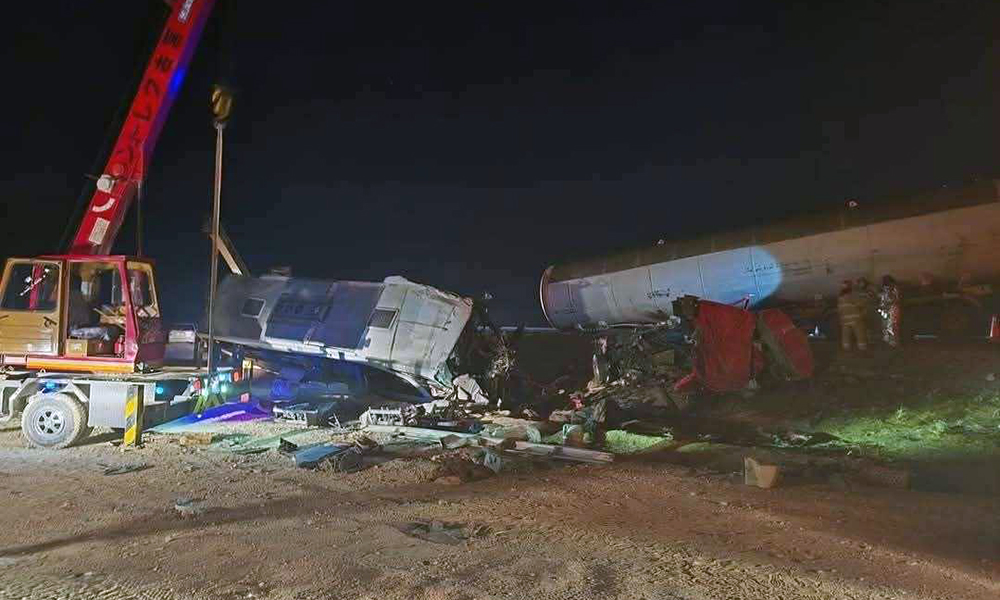
Two late-night traffic accidents in southeastern Afghanistan left at least 52 people dead and more than 65 injured, the Islamic Emirate confirmed early Thursday.
The accidents on Wednesday night happened in Ghazni province. Both accidents involved buses and one involved a fuel tanker.
According to a statement issued by the Islamic Emirate of Afghanistan (IEA) said: "It is with great regret that we learned that two fatal traffic accidents occurred on the Kabul-Kandahar highway, as a result of which 52 of our compatriots were martyred and 65 others were injured."
The Islamic Emirate has directed the relevant directorate’s to investigate the two accidents to determine the exact cause of both.
The Directorate of Information and Culture of Ghazni province meanwhile said in a statement that 47 people had died and 73 others were injured in the accidents.
The directorate stated that the injured had been taken to hospital; some of whom were in a critical condition.
One accident involved a passenger bus and a fuel tanker and the other involved a passenger bus and truck.
Latest News
There should be no distance between media and government: Stanikzai
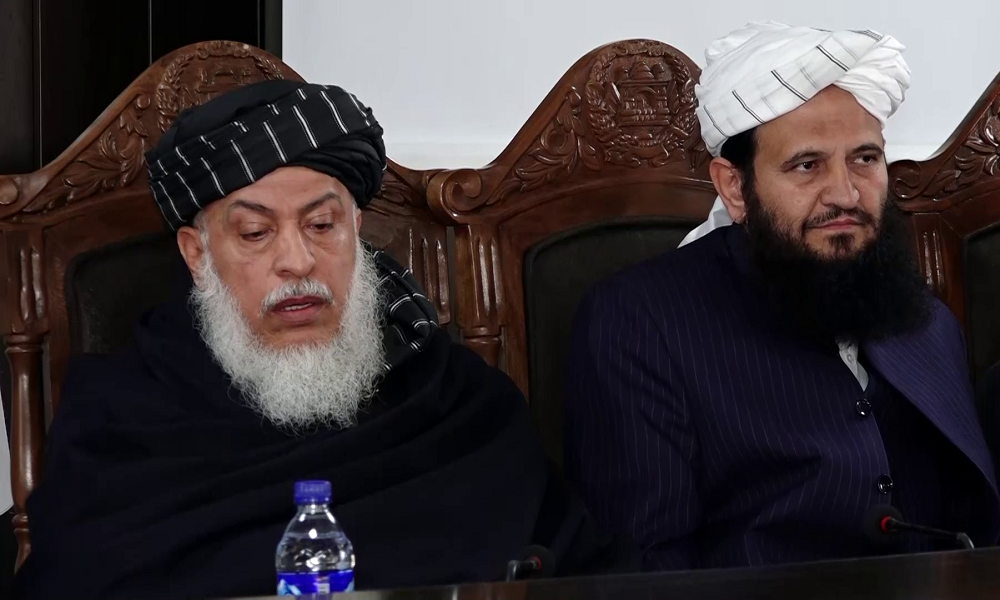
Sher Mohammad Abbas Stanikzai, the political deputy minister of foreign affairs, says media outlets should be supported in a way that there is no distance between them and the government.
Stanikzai, speaking at a seminar titled "The Role of Media in Strengthening the Islamic System" in Kabul, added that the media plays a crucial role in global propaganda wars, and it is necessary for the IEA to cease exerting pressure on the country's media and allow them to freely play their role in the development and prosperity of the country.
"The problems of the media should be heard, their voices should be heard, and the environment should be conducive for them to carry out their work freely,” he stated.
He further emphasized that the views towards the country's media should be such that both sides do not view each other as strangers, and the IEA should refrain from exerting pressure on the media and allow them to operate with freedom.
Meanwhile, officials from the Ministry of Information and Culture also stated at the seminar that they have not adopted an approach of confrontation with the media and that the ministry is committed to collaborating with them.
Participants in the seminar also urged the media to spare no effort in reflecting a positive image of Afghanistan to the world.
This seminar was held at a time the media considers itself committed to freedom of expression and reporting activities within the framework of national interests and Islamic values.
Latest News
DABS signs contract to purchase electricity from Uzbekistan for 2025
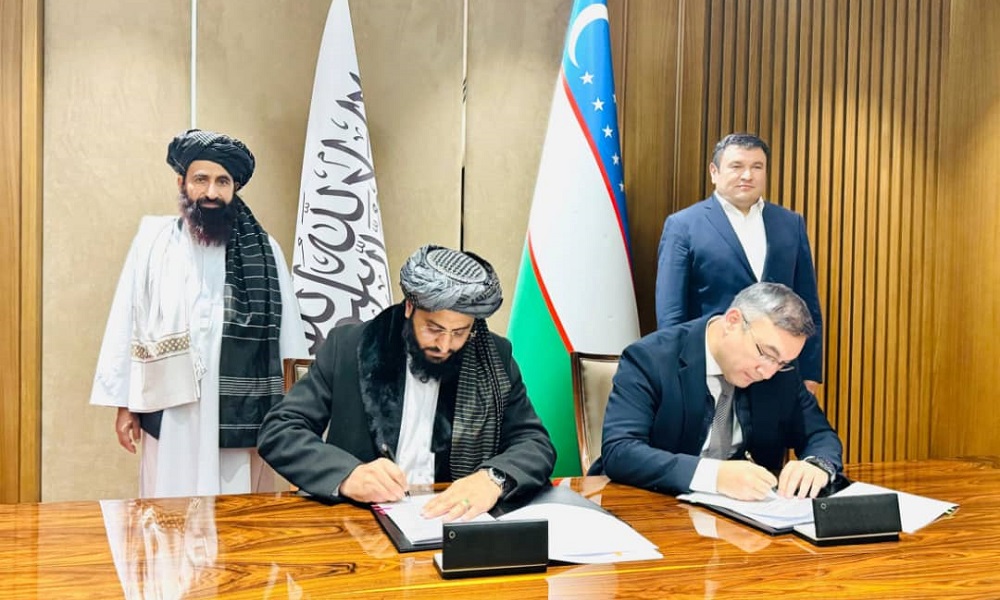
Da Afghanistan Breshna Sherkat (DABS) has announced that a contract for the purchase of electricity from Uzbekistan has been signed for the year 2025.
This agreement was signed following a visit by an Islamic Emirate delegation, led by DABS CEO Abdul Bari Omari to Tashkent, where they engaged in discussions with Uzbek officials.
"The General Director of Da Afghanistan Breshna Sherkat, along with a delegation, traveled to Uzbekistan and signed the electricity purchase agreement for 2025 during a meeting with officials from the Uzbek electricity sector,” said DABS spokesman Hekmatullah Maiwandi.
Meanwhile, some investors have urged IEA to engage with Uzbekistan regarding the 500-kilovolt electricity project and to ensure the swift completion of this project.
Once completed, the project is expected to alleviate some of the electricity shortages in the country.
Tajikistan agreement
Late last month, Tajikistan's national electric power company, Barqi Tojik, and DABS signed a similar agreement, which will see Tajikistan supply Afghanistan with power through 2025.
The signing ceremony was attended by Mahmadumar Asozoda, General Director of Barqi Tojik, Omar.
According to Barqi Tojik's press secretary, Kurbon Ahmadzoda, the agreement is expected to be extended annually until 2028.
However, the electricity export will reportedly be limited to the summer months, from May to September, and will be dependent on the availability of electricity within Tajikistan's domestic market, Tajik media reported at the time.
Powering a future
Afghanistan currently produces only 20% of its energy needs, while 80% of its electricity is imported from Uzbekistan, Tajikistan, Turkmenistan, and Iran.
The Islamic Emirate has however made it a priority to encourage domestic production of power since regaining control in August 2021.
Omar has met with potential investors on numerous occasions and has encouraged them to invest in the sector.
One such meeting was held in August with officials from Bayat Power.
Bayat Power is Afghanistan’s largest private Electric Power Production and Development Company and owns and operates Bayat Power-1, the first in a new generation of Gas to Electricity power generation plants.
Bayat Power is hoping to start work soon on Phase 2 of Bayat Power-1 in northern Jawzjan province in order to increase electricity production output for Afghanistan.
Mohammad Shoaib Sahibzada, the technical head of Bayat Power, has said that once Phase 2 is complete, electricity production will increase from 40 to 100 megawatts.
Sahibzada said Bayat Power's natural gas to electricity generation project will eventually produce up to 250 megawatts of electricity once Phase 3 is complete.
Bayat Power has produced over one billion kilowatt hours of electricity in just under five years after starting commercial operations in late 2019.
Sahibzada said that over the past five years, the company has also worked on capacity building of its technical employees.
Leading the way
Bayat Power is the first private company in 40 years to produce electricity from natural gas in the country and the multi-million dollar plant uses Siemens Energy’s SGT-A45 mobile gas turbine for its economic efficiency, flexible deployment, and power density.
Currently providing electricity to hundreds of thousands of end-users and generating more than 300 million kWh annually, the project was structured as an innovative public-private partnership between Bayat Power, Siemens Energy, and Afghanistan government entities such as the
Ministry of Mines and Petroleum, the Ministry of Energy and Water, and the General Directorate of Afghan Gas Corporation Company, Da Afghanistan Breshna Sherkat (DABS), and international partners.
The Bayat Group is the largest private investor in Afghanistan and Bayat Power is currently the only gas-powered plant in the country.
The Siemens Energy’s SGT-A45 mobile gas turbine used by the company is the only one in operation in the world.
-

 Latest News5 days ago
Latest News5 days agoAfghanistan seals T20I series victory over Zimbabwe
-

 Latest News5 days ago
Latest News5 days agoU.S. sentences Afghan man to 30 years in prison for narco-terrorism and witness tampering
-

 International Sports4 days ago
International Sports4 days agoMessi vs Ronaldo: A look at their market values over the years
-

 Latest News5 days ago
Latest News5 days agoInvestment in Afghanistan’s pharmaceutical sector reaches $300 million: Union
-

 Sport5 days ago
Sport5 days agoAfghanistan’s Gulbaddin Naib fined 15% of match fee for dissent
-

 Regional4 days ago
Regional4 days agoHezbollah chief says group lost its supply route through Syria
-
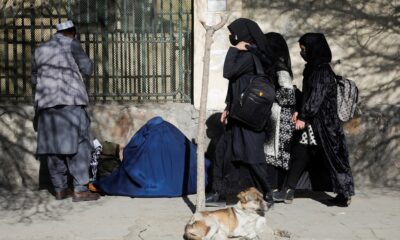
 Latest News4 days ago
Latest News4 days agoInjustices against Afghan women threaten global equality: US
-

 Sport3 days ago
Sport3 days agoATN to broadcast exciting 2025 ICC Champions Trophy live in Afghanistan
























